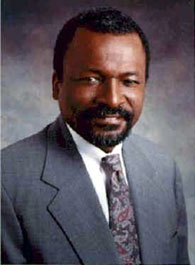Ignoring Instructions: The Importance of Using Prescription and Over-the-Counter Medications Properly

April Ignoring Instructions The Importance of Using Prescription and OTC Medications Properly
Ask the Expert:
H. Westley Clark , M.D., J.D., M.P.H., CAS, FASAM, Director of the Center for Substance Abuse Treatment under the Substance Abuse and Mental Health Services Administration, U.S. Department of Health and Human Services
1. In recovery, what nutritional substances work best to improve dopamine levels in the brain that are frequently depleted by misuse of prescriptions?
Answer
Nutritional substances that work best include over-the-counter supplements that contain the amino acid, including precursors to dopamine (tyrosine and phenylalanine). In addition, there are some foods that increase dopamine: almonds, avocados, bananas, lima beans, pumpkin seeds and some dairy products.
2. Where can I get information about mixing prescription and over-the-counter drugs and any potential problems there could be in taking them at the same time? For example, is there a consumer website that lists information on prescription drug use and the kinds of things you can and cannot combine them with – such as over-the-counter or other prescription drugs, or food and alcohol warnings for consumption while on them? I care for my elderly mother and her physician is often not available for such calls, and if I need to give her over-the-counter medications, I usually need to do so immediately. Sometimes I am simply using something that I already have on hand in the house.
Answer
There are many consumer websites on the Internet regarding drug-drug interactions, none of which can cover them all. While a particular website may provide you the information you need, it is still prudent to notify the caring physician or call your local pharmacist.
3. How can I find out about the proper use of supplements in conjunction with prescription and over-the-counter drugs?
Answer
Consult your local pharmacist or caring physician.
4. What happens to a prescription or over-the-counter drug once it has reached its expiration date? Is it still usable for a short period of time after the expiration date?
Answer
This is a question you should discuss with your pharmacist, since there is no short or simple answer.
5. I have no idea if my teenagers and pre-teens are misusing prescription drugs or inhalants. Where can I get information on things that I can look for in their behavior or environment to help me be more aware and keep an eye out for it? How do I talk to my teenager/pre-teen about prescription and over-the-counter drug misuse and abuse?
Answer
There is no one complete source. Each teenager is different, and each situation is widely varied. However, communication with your teenager as well as others is highly important. For example talk to your teenager’s friends, teachers or school counselors, who may be aware of your child’s behavior and certain drug trends in the community.
6. What are the available treatment and recovery services specifically for adolescents and young adults who have a problem with prescription drug abuse? Additionally, as a family, where do we turn to for assistance and support?
Answer
Often prescription drugs are easier for youth to find than other drugs or alcohol. If a family member is in need of prescription drugs for a bona-fide medical condition, youth are often very savvy about which drugs in the medicine cabinet can be used to create a feeling of well-being, an altered state of consciousness, or, as youth might frame it, “to get high.” One of the easiest but overlooked ways to help youth avoid trying a prescription drug for the first time, or to help keep them from continued use of a drug they find pleasurable, is to make sure that any prescription drugs of potential abuse be kept under lock and key and inaccessible.
If you believe that someone in your household is acquiring and abusing prescription drugs, it is extremely important to find a program that will do a thorough assessment to determine if what you are suspecting may be true. This is not intruding on the life of a loved one; this is acting lovingly with appropriate diligence to ensure the youth or young adult is not creating a drug abuse problem for themselves or anyone else in the home (e.g., younger sibling).
The second part of the above question implies that the family wants to be involved in the treatment process. This is great news! An extremely important part of the assessment and treatment process which will make a positive outcome much more likely is involvement of the entire family.
It is important to make sure that the program you choose offers the services you are seeking: assessment, referral and treatment for a family with a loved one who is an adolescent or young adult who may be abusing prescription drugs. Just as important is to ensure that they provide services inclusive of the entire family. The Substance Abuse and Mental Health Services Administration’s (SAMHSA) Health Information Network (SHIN) has a facility locator which will lead you to programs in your area that provide assessment and treatment services. This information can be accessed at http://findtreatment.samhsa.gov/. If you would rather speak with a live person over your phone, you can call 1-877-726-4727 and you will receive assistance to find the same information.
There is also an excellent resource available to help guide you in this process, “Ten Important Questions to Ask a Treatment Program,” from the Drug Strategies publication Treating Teens: A Guide to Adolescent Drug Programs. The important questions for parents to ask are listed at the site, as well as other companion information that will lay out in detail what is important in choosing a program that is likely to be effective. You can access this information at http://www.drugstrategies.com/teens.html. The online information is free, but there is a cost to cover the printing and shipping of the manual if you would like a printed copy.